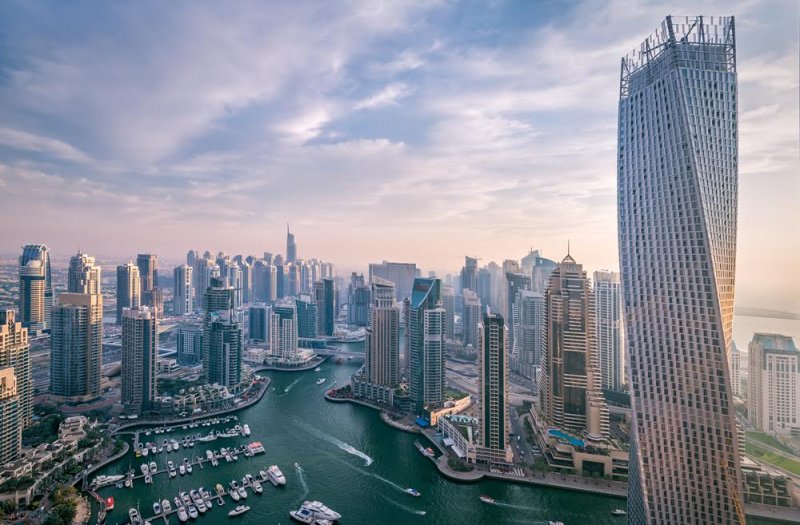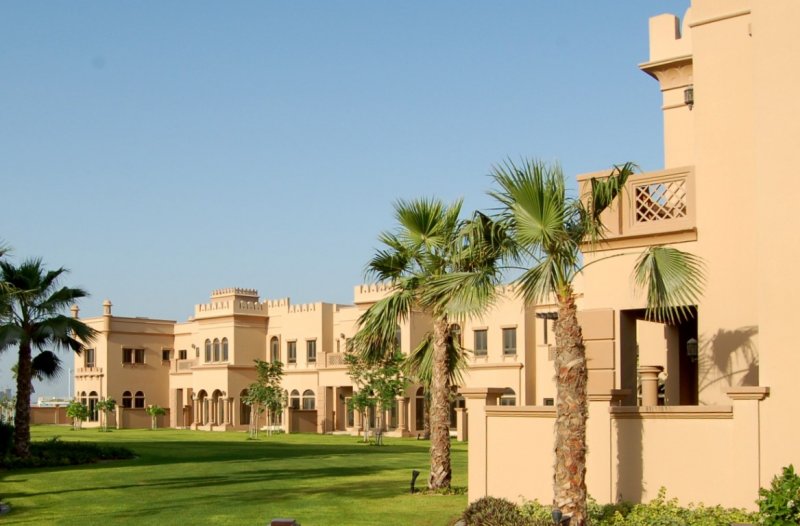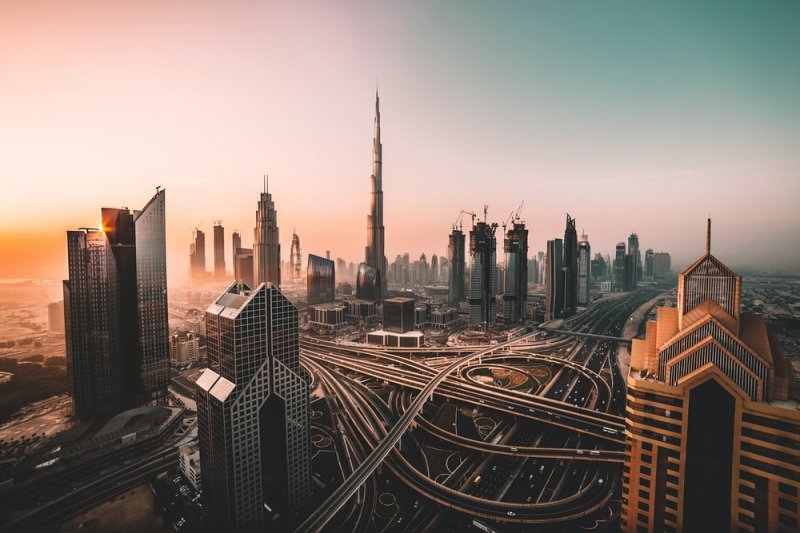
Dubai records $81bn real estate deals in 2021, up 71%
Dubai’s real estate market recorded 84,772 transactions worth AED300 billion ($81 billion) in 2021, according to a new report issued by the Dubai Land Department (DLD).
Supported by the government’s economic stimulus packages and the emirate’s hosting of Expo 2020 Dubai, the sector continued to draw investors from around the world.
The report revealed a 65 percent growth in the number of transactions and a 71 percent increase in value compared to 2020.
A total of 52,415 investors concluded 72,207 new investments in 2021 worth AED148 billion representing a 73.7 percent growth in the number of investments, a 65.6 percennt rise in the number of investors, and a 100 percent increase in the value of investments compared to 2020.
Sheikh Hamdan bin Mohammed bin Rashid Al Maktoum, Crown Prince of Dubai, said: “Dubai’s robust infrastructure, flexible legislations that have kept pace with evolving market conditions, and its safe environment have all contributed to deepening investment confidence in its real estate sector.
“The rise in investments and the increasing interest shown by global investors in Dubai is testament to the effectiveness of the emirate’s strategic economic initiatives that have sought to strengthen its leadership in various sectors and enhance its global rankings in development indicators.
“Dubai has a clear vision for the future, and its partnership with the global investment community continues to be vital to its ability to accelerate growth and meet its ambitious goals for the future,” he said.
Sultan Butti bin Mejren, director-general of DLD, added: “Dubai’s real estate sector has once again proven its resilience, attractiveness and ability to achieve sustainable growth even during the exceptional circumstances being witnessed globally. The results highlighted in the report bode well for the future as the country ushers in another 50 years of economic development. The real estate sector represents a major catalyst for the growth of various other sectors.”
Bin Mejren said real estate legislations that will help regulate, encourage and manage investments will continue to be developer.
The report revealed that there were 6,897 investors from the GCC who registered 8,826 investments worth over AED16.88 billion while a total of 6,097 Arab investors recorded 7,538 investments, with a value exceeding AED12.4 billion.
Dubai’s real estate sector also attracted 38,318 foreign investors, who concluded 51,553 new investments worth over AED99 billion.
DLD’s statistics also revealed that 17,705 women registered 22,165 investments worth over AED38.4 billion in 2021, a 72 percent increase compared to 2020.
Dubai Marina area saw the highest number of transactions, with 7,968 transactions, followed by Business Bay (5,687), Al Thanyah Fifth (5,092), Al Barsha South Fourth (4,813), Hadaeq Sheikh Mohammed bin Rashid (4,352), Burj Khalifa (4,279), Wadi Al Safa 5 (3,536), Al Hebiah Fourth (3,261), Al Merkadh (3,150), and Palm Jumeirah (2,803).
Dubai Marina also saw the highest value of transactions with over AED28.6 billion, followed by Palm Jumeirah (AED26.6 billion), Hadaeq Sheikh Mohammed bin Rashid (AED15.8 billion), Burj Khalifa (AED14.2 billion), Business Bay (AED13.19 billion), Al Thanyah Fifth (AED8.19 billion). Wadi Al Safa 5 (AED8 billion), Al Yufrah 1 (AED7.3 billion), Al Thanyah Fourth (AED7.2 billion), and Al Hebiah Fourth (AED7.19 billion).
The report also revealed that 3,171 new brokers entered the market, increasing the total number of registered real estate brokers to 8,002.
The value of real estate brokers’ commissions in Dubai’s real estate market in 2021 exceeded AED3 billion through 12,067 transactions.
According to DLD, a total of 35 real estate projects with a value exceeding AED11 billion were completed in 2021 and 319 projects are in progress.

Villas set to lead Dubai real estate growth as Expo opens
Villas are expected to drive strong growth in Dubai's real estate sector during the fourth quarter of 2021 as consumer and investor sentiments rise ahead of Expo 2020 Dubai, according to new research.
Dubai-based Zoom Property said the demand for villas is expected to surge in the areas closer to the six-month long exhibition site, which opens on October 1.
Its report said up to 50 percent sales growth on a quarterly basis is expected in the villa segment during the October-December period.
"Expo 2020 is round the corner and it will lead to positive sentiments in the market. The areas close to the site of Expo 2020 will witness more transactions for villas in Dubai in Q4, 2021 as the demand picks up with every passing day," said Ata Shobeiry, CEO at Zoom Property.
According to its report, transactions for 1,400 villas worth AED3.1 billion and 2,284 villas worth AED5.4 billion were recorded in Q1 and Q2, respectively.
Q3 is also likely to conclude on a higher note with strong double-digit growth, it added.
"With the mega-event starting from October 1,the demand for villas can be doubled as compared to the last year," said Shobeiry.
"Arabian Ranches, Dubailand, Dubai South, Palm Jumeirah, MBR City, Dubai Hills Estate and Damac Hills 2 are likely to be prime areas for villa transactions during the fourth quarter as we have received lot of enquiries from the investors and end-users," he added.
Zoom Property is an emerging property portal in the UAE with a primary focus on Dubai, Abu Dhabi and Sharjah markets. The portal also features international properties in Saudi Arabia, UK and other regions.

Dubai house prices to rise modestly, stay affordable in coming years
The economy has bounced back sharply from the pandemic in the city-state following a successful vaccination drive, and that has spilled into the real estate market, with a continued increase in sales, according to Dubai Land Department records.
Dubai's house prices were forecast to rise 3.0% this year and 2.5% in 2022, compared with 1.1% and 2.8% expected three months ago, according to a Reuters survey of 11 property analysts taken Aug. 11-19.
That modest outlook stands in stark contrast with other world property markets like Canada, Australia and New Zealand where already record-high house prices were expected to rise in double digits this year, stretching the limits of affordability.
"Prices overall are still about 36% down from their last peak in 2014, so relatively speaking we are still a long way off from the previous peak," said Faisal Durrani, head of Middle East research at Knight Frank.
"And the increases recently are definitely suggesting the market has started to bottom out in certain pockets. At the top end of the market we are probably seeing a quicker recovery than elsewhere. For some, like apartments, we are not expecting price rises as quick and as fast as has been the case for villas."
A regional powerhouse of trade and tourism, the United Arab Emirates economy - a union of seven emirates including Dubai - is expected to grow 4.2% in 2022, according to a Reuters July poll. The UAE central bank pegged it at 3.8%.
Nine of 11 analysts said activity in Dubai's housing market would rise in the coming year and two said it would stay the same. None expected it to decline.
Among analysts who answered an additional question, five of 11 said a sharp upturn in the economy was the biggest upside risk to the housing market outlook over the coming year.
"Immigration reforms, trade liberalization and (the) 2040 masterplan are all giving a major fillip to Dubai's economy. The Dubai Expo will also boost economic activity. This inevitably helps in attracting more FDI and indirectly benefits the overall real estate market," said Anuj Puri, chairman at ANAROCK Property Consultants.
Three chose job growth as upside risks, two cited effective handling of the pandemic and one said an increase in affordable homes.
On an affordability scale of 1 to 10 where 1 is extremely cheap and 10 is extremely expensive, analysts returned a median of 4, rating Dubai housing in the inexpensive bracket.
A clear majority of analysts, nine of 11, said affordability would either stay the same or improve over the next two to three years. Only two expected it to worsen.
One main reason Dubai's housing market remains relatively cheap compared with other world markets is because there is an ample supply of homes to live in.
"Next year, we are currently tracking almost 64,000 units due to complete. And if that figure materializes it would be the highest level of completions since the 2009 GFC (global financial crisis)," said Knight Frank's Durrani.
"Clearly... oversupply has been an issue in the past and that does remain a risk."